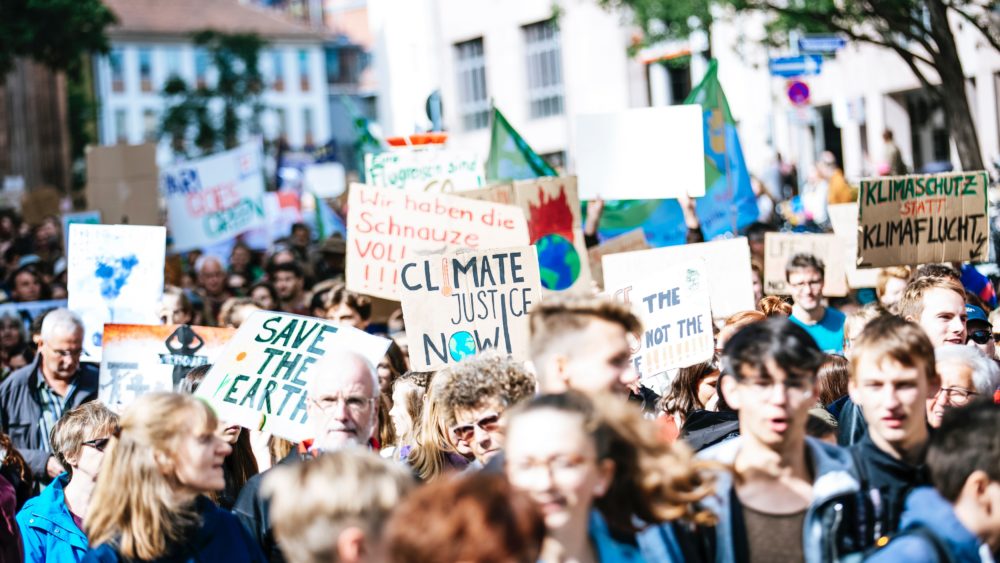Towards political solutions to the climate crisis
It’s been two years since one of the most iconic climate activists Greta Thunberg gave her speech at the COP24 United Nations climate change summit (December 2018), giving birth to the Fridays for Future movement. In the same months, the Extinction Rebellion movement was launched in the UK, with about one hundred academics signing a call to action in support.
Considering decades of appeals made by the scientific community, they can be considered very young movements, born on the sense of urgency caused by the substantial political inaction of European parties.
Fridays for Future and Extinction Rebellion have always declared themselves as political movements but without supporting any particular party. This feature characterised their actions and their relationships with parties, which would have been difficult anyway because of the international nature of these movements and a very fragmented scenario in European policy for climate change. It’s worth noticing that the relationship between these new environmental movements and the green european parties has never been particularly strong.
Meanwhile in the US, the main environmental movement — the Sunrise Movement — has a completely different story. The Sunrise Movement targeted the democratic party in order to promote their ideas on climate policies with different actions. Their most famous action, which gave visibility to the movement, was the sit-in in Nancy Pelosi office in November 2018, supported by the congresswoman Alexandria Ocasio-Cortez.
Why are European environmental movements like Extinction Rebellion and Fridays for Future so distant from any political organisation?
The answer to this question is complex, but two main reasons can be identified: the lack of credibility of most parties in addressing the climate crisis, and the absence of an international political response.
Up to now, new environmental movements have been quite immune from the trivial “green propaganda” of many national political parties. In fact, the goal to limit the temperature rise below 1,5 degrees as declared in the IPCC reports is a sacred constraint for them, and any political party that doesn’t explicitly declare to have the willingness to address this issue and concrete proposals is considered as not worthy of their vote.
Moreover, many political parties seem to have betrayed their original ideas regarding green politics; last but not least the young “movimento 5 stelle” in Italy which — despite the fact that environment is one of the 5 keywords that gave birth to its name and symbol — hasn’t yet taken concrete actions after almost 3 years in the government. The result of this situation is that many young voters remain unrepresented.
The present analysis could be considered over-simplified: in American culture, it is much more common that organisations and people endorse a political party. In addition, none of the two models can be declared uniquely more effective than the other. Still, a fundamental issue should be highlighted: the distance between environmental movements in Europe and politics is huge, and this results in an highly ineffective effort for political pressure.
The lack of a minimal political representation for environmental movements results in many right-wings parties which can afford to ignore the climate issue, and many left-wing parties that are proposing minimal action. Meanwhile, in the US, all democratic candidates to the primary elections have been “forced” to include at least some actions of the Green New Deal endorsed by the Sunrise Movement and Bernie Sanders. This has a strong link with the Green New Deal for Europe, which didn’t receive such visibility.
The driving force to effectively implement green policies can be the cooperation between environmental movements and a pan-european political party.
In 2021, the COP26 United Nations conference on climate change will take place
The main challenge for environmental movements is to translate their consensus into selective political pressure towards credible political actors, while maintaining their original ideas.
These movements have a strong ideological link with DiEM25, since they embrace the ideals of anti-racism and LGBTQIA+ rights, and have already shared some campaigns like #MakeAmazonPay. Still, a serious gap remains. FFF and XR will never declare themself as socialist movements:
https://twitter.com/XRebellionUK/status/1300794775138906114?s=20
It’s a respectful choice, since the root topic, the climate crisis, should embrace everyone, regardless of its political background.
Nevertheless, these movements are mature enough to understand that capitalism as usual will never solve the climate crisis. There is no evidence supporting the existence of a decoupling of economic growth from environmental pressures on anywhere near the scale needed to deal with environmental breakdown. But also, and perhaps more importantly, such decoupling appears unlikely to happen in the future. Environmental movements must recognise that without a concrete opposition at the heart of our economic and political system, their action will remain ineffective. They can decide not to declare any political affiliation, but should act like they had one.
On the other side, DiEM25 has to be more inclusive in his debate for a post-capitalist vision. Economic issues should be communicated “as simple as possible, but not simpler”. What does it mean to take concrete actions to fight the climate crisis? We are not talking about goals, we are talking about solutions. This is a privileged starting point, since most political organisations silently ignore that there is an “expiration date” to implement green policy. As it stands, there will be no real green policies in this Europe. The environment is another problem that capitalism as usual cannot, and will never, solve. Just spread this awareness, before it’s too late.
Photo Source: Photo by Markus Spiske from Pexels.
The views and opinions expressed here are those of the author and do not necessarily reflect DiEM25’s official policies or positions.
Do you want to be informed of DiEM25's actions? Sign up here















